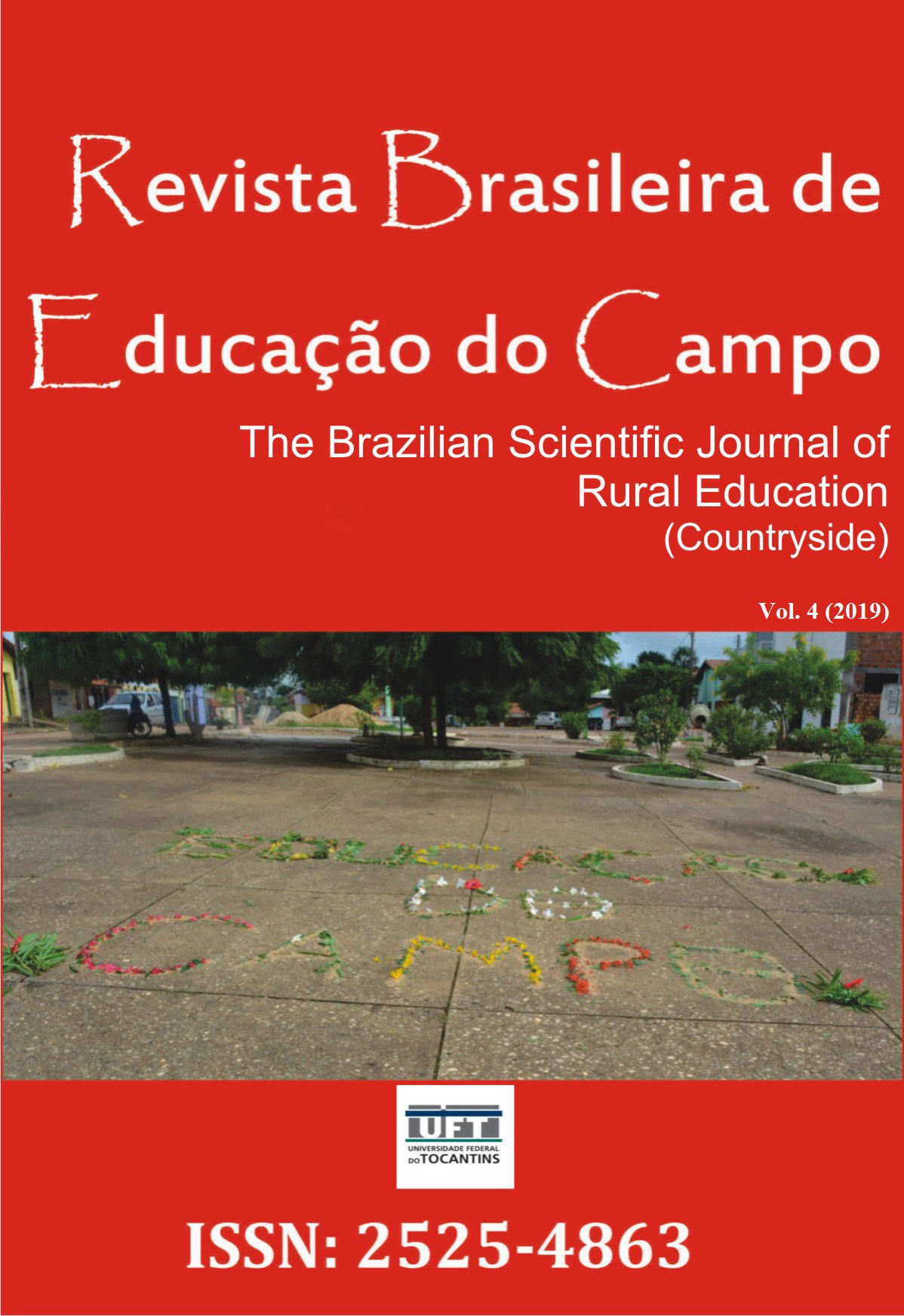Alternation as a decolonial diasporic movement: for a popular memory-history of subjects in Course
DOI:
https://doi.org/10.20873/uft.rbec.e7326Abstract
This article aims to contribute to the debate on Pedagogy of Alternation, based on a concrete research experience with the first class of the Rural Education Degree (LEC) of a Federal Rural University of Rio de Janeiro, Seropédica campus. Starting from the problem of being the Alternation a decolonial diasporic movement, especially by the exchange of knowledge between Tempo Escola and Tempo Comunidade in its diverse methodological dynamics, we intend to investigate how the historical-memory could be written by a popular education collectivized among the participants of the Course. Through discursive analysis of official Course documents, also revisited by the students' participation in different methodological processes during graduation, the study demonstrated how the effective proposals made available another possibility of formation, based on Alternation. However, training centers, especially universities, need to be more widely available so that alternative methodologies can also be integrated with the formal activities of the LEC.
Downloads
Literaturhinweise
I – Livros e capítulos de livro consultados:
Antunes-Rocha, M. I; Martins, A. A. (2009). Educação do Campo: desafios para a formação de professores. Belo Horizonte, MG: Autêntica Editora.
Bakhtin, M (2000). Estética da criação verbal. 3.ed. São Paulo, SP: Martins Fontes.
Caldart, R. S; Pereira, I. B; Alentejano, P; Frigotto, G (2012). Dicionário da Educação do Campo. Rio de Janeiro, RJ; São Paulo, SP: Escola Politécnica de Saúde Joaquim Venâncio; Expressão Popular.
Hall, S. (2003). Da diáspora: identidades e mediações culturais. Belo Horizonte, MG: Editora da UFMG; Brasília, DF: Representação da Unesco no Brasil.
Iasi, M. (2002). Aos educadores populares – aula de voo. In: Saviani, D. Educação: do senso comum à consciência filosófica (pp. 15-16). Campinas, SP: Autores associados.
Le Goff, J (2013). História e memória. Campinas, SP: Editora Unicamp.
Paludo, C. (2012). Educação Popular. In: Caldart, R. S; Pereira, I. B; Alentejano, P; Frigotto, G (2012). Dicionário da Educação do Campo (pp. 280-285). Rio de Janeiro, RJ; São Paulo, SP: Escola Politécnica de Saúde Joaquim Venâncio; Expressão Popular.
Paludo, C. (2001). Educação popular em busca de alternativas: uma leitura desde o campo democrático e popular. Porto Alegre, RS: Editora Tomo.
Ricouer, P. (2007). A memória, a história, o esquecimento. Campinas, SP: Editora da Unicamp.
Walsh, C. (2017). Pedagogías Decoloniales: práticas Insurgentes de resistir, (re)existir e (re)vivir. Serie Pensamiento Decolonial. Equador: Editora Abya-Yala.
II – Documentos consultados:
LEC. Relatório Analítico e Descritivo das Atividades. Seropédica: UFRRJ, 2014.
LEC. Projeto Político-Pedagógico de Curso. Seropédica: UFRRJ, 2010.
Veröffentlicht
Zitationsvorschlag
Ausgabe
Rubrik
Lizenz
Creative Commons Attribution License
Creative Commons Attribution License
Proposal for Copyright Notice Creative Commons
1. Policy Proposal to Open Access Journals
Authors who publish with this journal agree to the following terms:
A. Authors retain copyright and grant the journal right of first publication with the work simultaneously licensed under the Creative Commons Attribution License that allows sharing the work with recognition of its initial publication in this journal.
B. Authors are able to take on additional contracts separately, non-exclusive distribution of the version of the paper published in this journal (ex .: publish in institutional repository or as a book), with an acknowledgment of its initial publication in this journal.
C. Authors are permitted and encouraged to post their work online (eg .: in institutional repositories or on their website) at any point before or during the editorial process, as it can lead to productive exchanges, as well as increase the impact and the citation of published work (See the Effect of Open Access).














